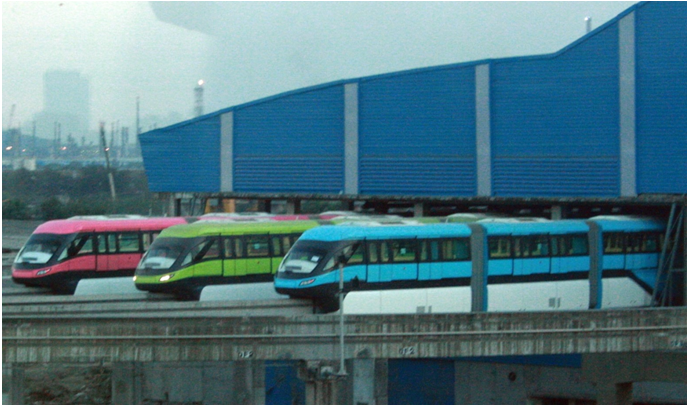
In a bold move to breathe new life into Mumbai’s struggling monorail system, the Mumbai Metropolitan Region Development Authority (MMRDA) has orchestrated a merger between the Monorail Project Implementation Unit (Mono-PIU) and the Maha Mumbai Metro Operation Corporation Ltd (MMMOCL). The decision, greenlit at a recent MMRDA meeting in Nagpur, aims to streamline operations, slash expenses, and infuse fresh vitality into the beleaguered transportation network.
Sanjay Mukherjee, the metropolitan commissioner of MMRDA, emphasized the merger’s potential to deliver substantial annual savings ranging from Rs 40 to 60 crore. These savings are anticipated across various cost categories and taxes, coupled with the elimination of redundant manpower, a move expected to significantly curtail expenditures. The current financial landscape of the monorail reveals a capital expenditure of Rs 291 crore, with revenue expenditure standing at Rs 252 crore, encompassing vital areas such as manpower, civil works, administration, security, and maintenance.
The merger involves a meticulous examination of diverse departments, including administration, train and station operations, commercial activities, signalling, and telecommunications. Adjustments will be made based on assessed needs, with the overarching goal of enhancing the monorail’s overall functionality. Anticipation surrounds the imminent arrival of new and improved monorail rakes in the coming months, marking the first such development in a decade.
The decision to merge comes at a crucial juncture for the monorail, which reported losses of Rs 250 crore in the fiscal year 2022–23. Projections for the ongoing fiscal year indicate a worrisome spike in losses, soaring to Rs 529 crore. This financial strain is attributed to the acquisition of new rakes and the construction cost of a travelator linking Mahalaxmi and Jacob’s Circle. Notably, the monorail’s ticketing revenue is estimated at Rs 13.6 crore.
In a bid to augment operational capacity and elevate passenger experience, MMRDA has placed orders for 10 new rakes. These additions, joining the existing seven, are poised to reduce the inter-train service gap from the current 18–20 minutes to an impressive five to seven minutes. The move is expected to enhance passenger capacity and contribute to a more efficient and commuter-friendly monorail system.
The monorail, inaugurated in February 2014 for its first phase and fully unveiled in March 2019 with 17 stations, is set to undergo a transformative journey with this strategic merger. As Mumbai anticipates the dawn of a revamped and revitalized monorail era, the merger stands as a pivotal step toward sustainable operations, financial recovery, and an elevated transportation experience for the city’s residents.

